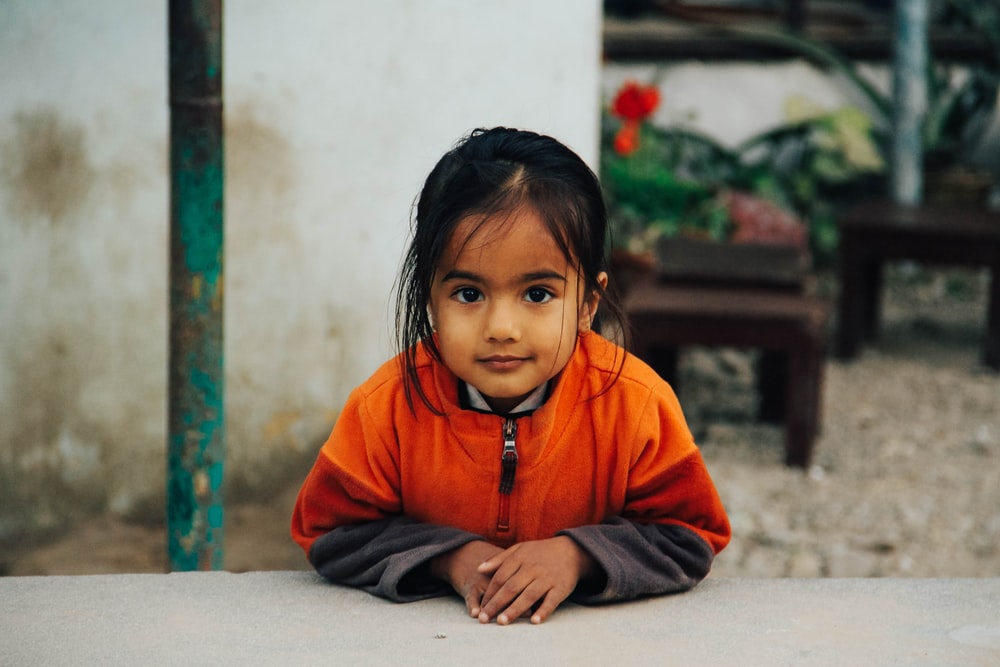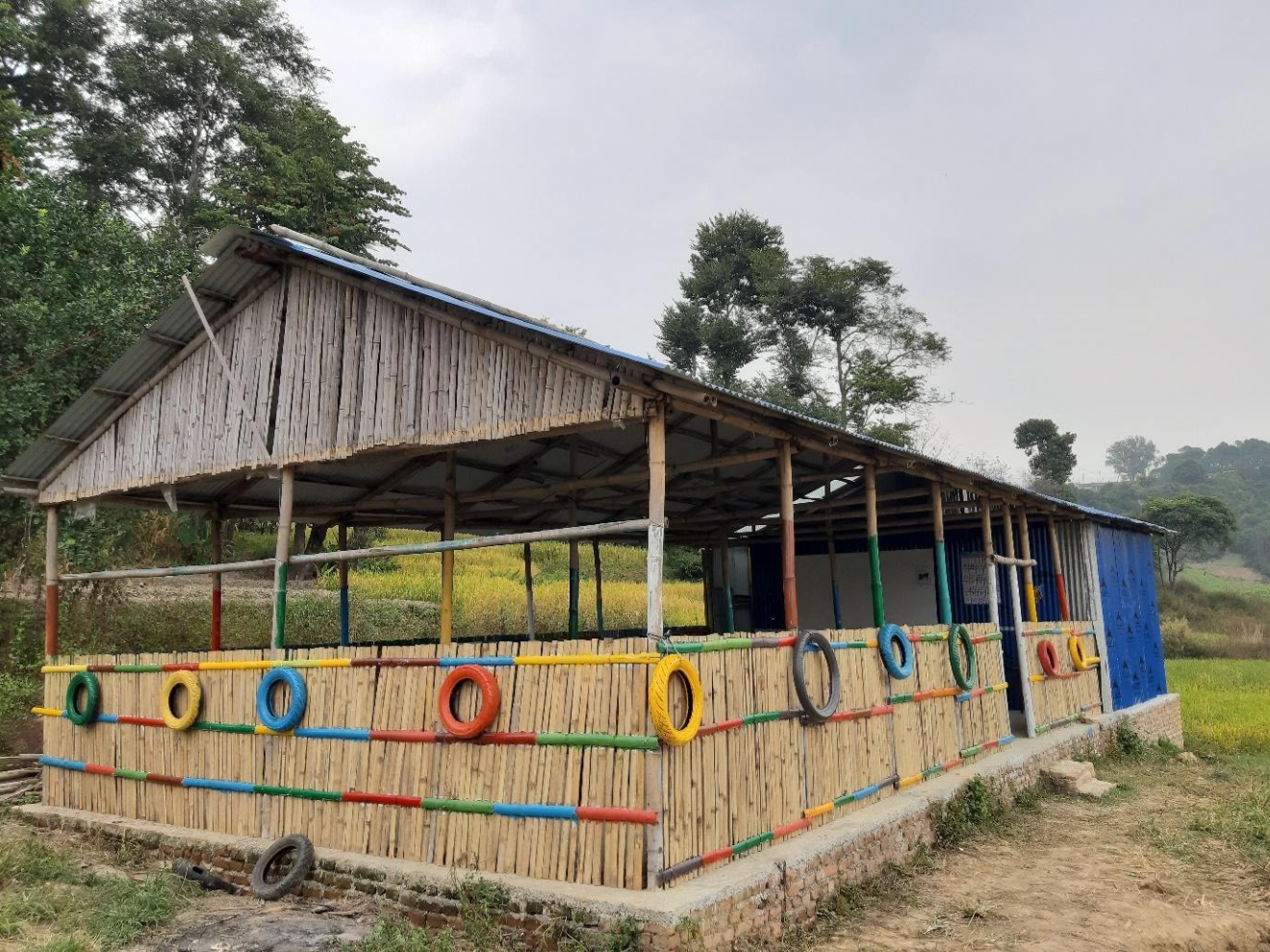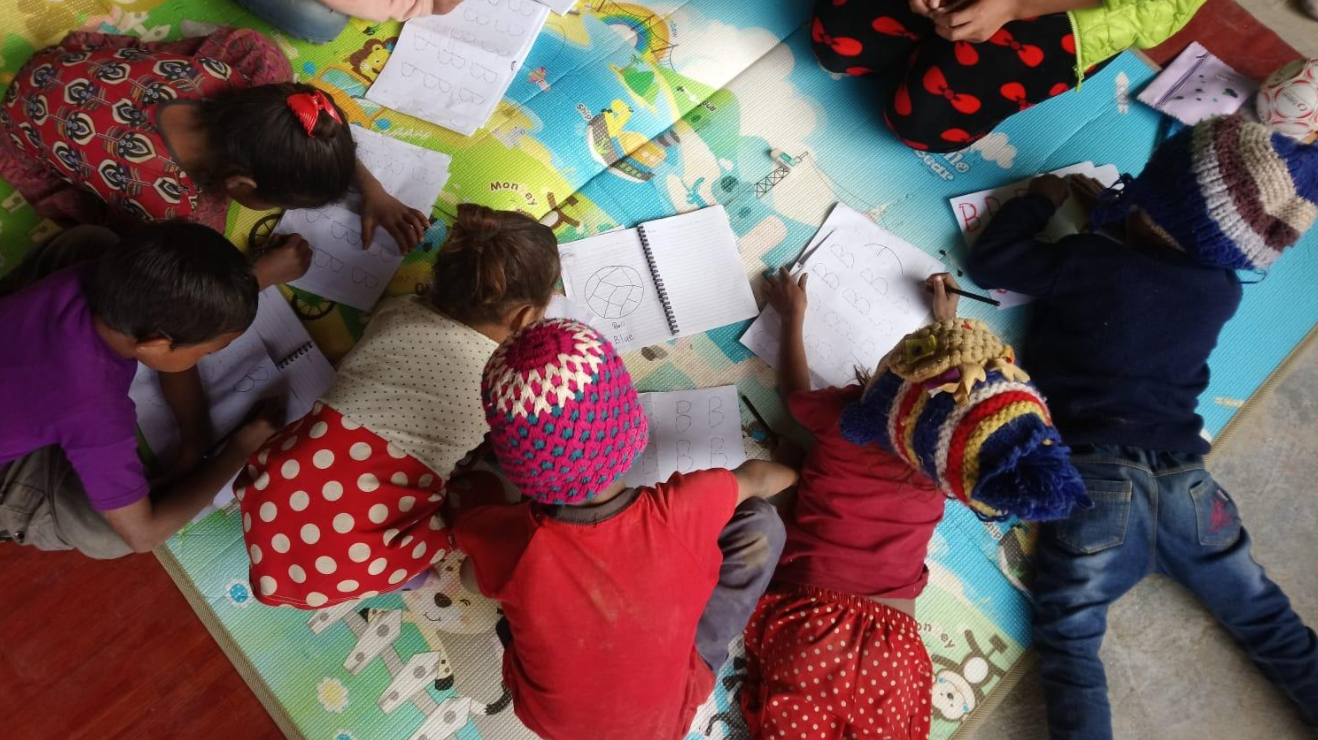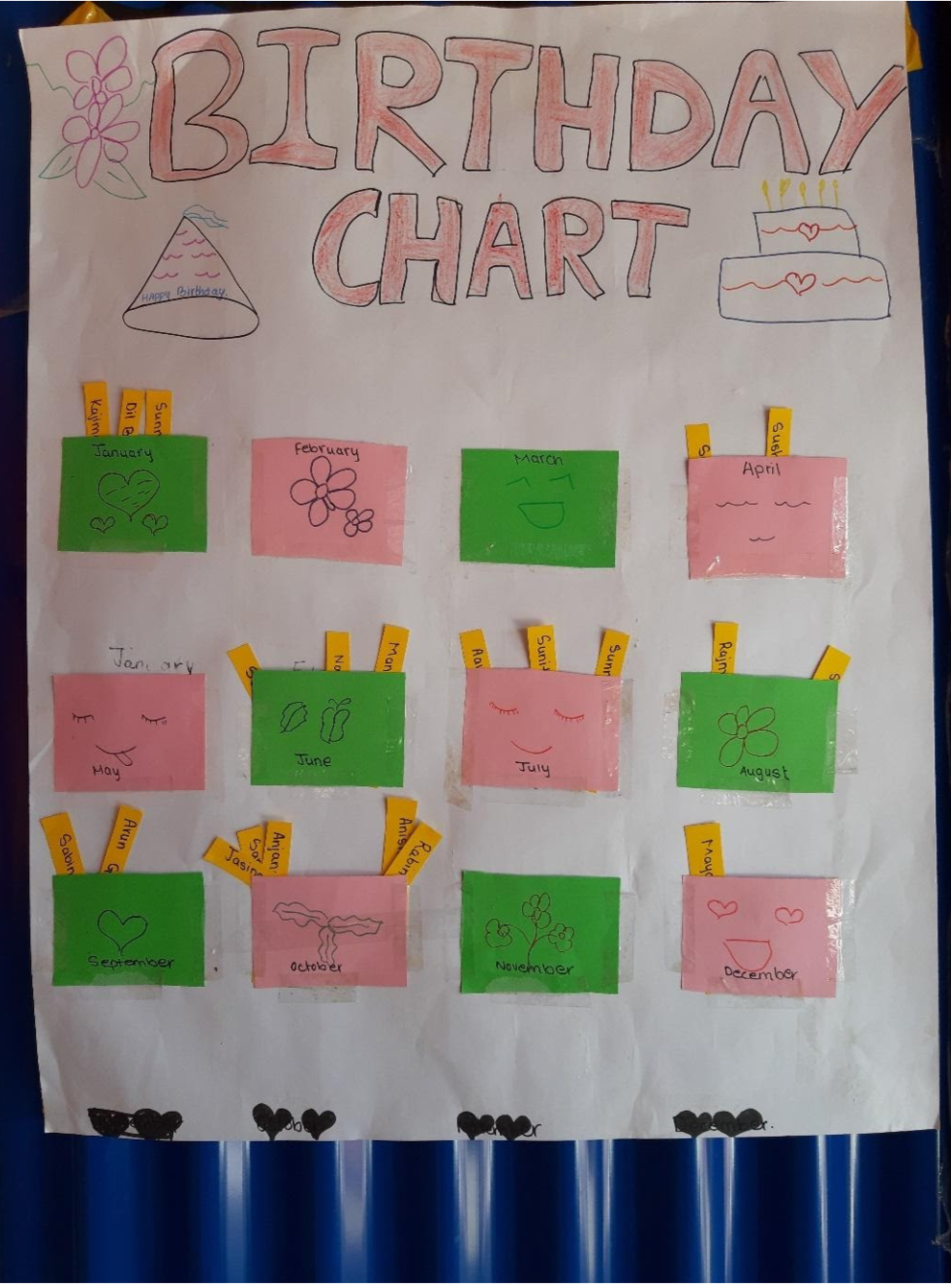“God provides so we have not too much, not too little”: S’pore doctor who left lucrative career to serve brick workers in South Asia
by Janice Tai // June 24, 2021, 11:27 pm

Brick workers' children at the Peace Child Ministry start the day by singing their national anthem and doing exercises. Photos courtesy of Julian.
Each time “Missions Week” rolled around at his church, Julian* would find himself tearing up while listening to the missions’ updates.
“Missions Week” was an annual event in the church calendar. Church leaders and missionaries would share with the congregation about the work they were doing in the nations, hoping to spur members on to support overseas projects.
“The burden on my heart for the poor was always there. It’s like an itchy scab. You want to scratch it but, at the same time, you dare not because you know it will leave an indelible mark,” said Julian, now 53.
God had not forgotten Julian’s promise, though it would take decades before the promise was fulfilled.
In his youth, Julian had prayed over his medical school application after his ‘A’ Levels.
If I get into medicine, I promise I will serve You full-time, Julian bargained with God. He got into medical school.
In adulthood, as he sat in the pews listening to the developments of ongoing mission projects overseas, Julian remembered the promise he made to God as a teenager. Little did he know that God had not forgotten it either, though it would take decades before the promise was fulfilled.
At that time, Julian had had a fulfilling and comfortable 12-year career as a Navy doctor. A couple of investors were enticing him to establish clinics. Eventually, he did leave the service with an unsigned promotion letter on his desk, and went on to set up a thriving private practice of his own.

Julian had a fulfilling and comfortable career as a doctor in the Navy for 12 years but he always felt that there was something more awaiting him.
Yet beneath the veneer of success, he was a mess – spiritually, relationally and emotionally, he confessed.
Tears in a library
“There was a sense of incompleteness and some form of divine restlessness. I knew I was veering completely off course from my divine destiny and for too long,” said Julian.
At church service with his wife one Sunday in 2007, Julian found himself unable to pay attention to the sermon being preached. Instead, he was upset over the mundane issue of a leaking hose in his garden.
“I realised how meaningless it was to be earning so much when I see people suffering all around me.”
Distracted, he wandered out of the church sanctuary and ended up in the church library.
It was there that he picked up a random book – the autobiography of Hudson Taylor, a missionary to China.
By the time he finished reading it at home a few hours later, he found himself in tears.
“Hudson Taylor was a man of great faith and he gave up many things to serve God. It was quite the exact opposite of my life then and that highlighted how far I had slid away from my initial promise to God,” he recalled.
“I realised how meaningless it was to be earning so much when I see people suffering all around me,” he added.
While he was convicted by what he had read, it was still scary for him to leave the safety of the comfortable life he had built around himself.
“I was reluctant to serve Him completely but decided to enrol in Trinity Theological College for part-time studies while mulling over my options,” Julian admitted.
God continued moulding Julian’s heart after he took that first baby step of obedience. And, by the time he graduated with a Master of Divinity five years later, he was prepared to serve God.
A second career
Julian was 48 years old then, with a family of two children, and he was ready for a second career in ministry work.
“I would make a lousy pastor. I went into missions because I knew I was born to lead and do pioneering work instead. It was also never far from my heart from my days of helping the poor when I was a medical student. My wife has always been involved in missions since she was a teacher trainee,” said Julian.
The couple approached their church’s mission society and was told that missionaries were needed both in China and South Asia. Julian and his wife did their homework by visiting both countries.
“You are a doctor … why are you asking if you should be serving in one of the least developed healthcare systems?”
As he was sitting in a café one day, God spoke clearly to him.
“You are a doctor and you have the compassion for the poor, having been involved in poverty relief work since medical school days. So why are you asking if you should be serving in one of the poorest countries in the world with one of the least developed healthcare systems?”
It was a rhetorical question. So South Asia it was.
In 2017, both of them went to South Asia and arrived at its capital.
They travelled all over the country – north, south, east, west – and joined some churches from Singapore which were running medical camps for the villagers. There were times when they had a comfortable house with running water and a functional flush toilet. On other occasions, they stayed in mud, bamboo and zinc huts with thatched roofs.
Doctors are a scarce resource in the country, with only six doctors on average for every 10,000 patients.

Julian climbed mountains all over the country to visit and serve the local people.
In the mountains where less than 10% of the land is arable and subsistence farming is supplemented by a small degree of animal husbandry, malnutrition is common.
In the lowlands where animals and humans live in close proximity, and people walk barefoot or in open sandals, zoonotic and parasitic diseases are endemic. Many of the women also experience symptoms of anaemia.
Julian discovered that malnutrition and anaemia affected every aspect of the lives of the locals. Constant tiredness, headaches and poor health often translated to absenteeism and poor performance in school and at work.
They were often too tired and weak to be productive and too hungry to care about longer-term issues.
It did not rain, it poured
Their first year of missions proved to be extremely challenging.
It was not because of the living conditions nor the state of ill health of the people as the couple went from village to village offering medical and humanitarian aid.
Rather, their family was hit with difficulty after difficulty.
“For months, it did not rain, it poured,” said Julian.
Their family was hit with difficulty after difficulty.
His wife was diagnosed with a high grade but early-stage malignant uterine cancer. His daughter, who was studying in the UK then, had problems coping with the stress of her academic studies as well as being apart from the family.
Barely one month after she entered university, she returned to Singapore. His wife also flew back to Singapore to have surgery. Julian returned to Singapore to be with his wife before the operation but they found themselves homeless as they had rented out their house. Fortunately, word got around and someone from their church, whom they did not know previously, offered them a place to stay.
Julian remained in Singapore for six months till his wife recovered. Then, the family decided together that he would go back to South Asia and resume ministry work while his wife would hold the fort at home, caring for their children.
The plan was also for Julian to return to Singapore frequently as South Asia was only a six-hour flight away.
But some friends and supporters were disapproving.

Julian decided to return to South Asia to use his experience, training and gifting for God.
“There was much disapproval because they felt my wife and daughter needed me to be around. We lost many supporters. Ministry is not easy and there will be discouragement, disillusionment, self-doubt and periods of faithlessness,” said Julian.
All of a sudden, they were left on their own with no support.
“My wife and I had prayed about it and we both felt that it was God’s will to proceed on this journey of faith. We would have to dig into our savings. There would be no monthly income to live on, let alone start or sustain any ministry in South Asia,” said Julian.
“It was not too much, not too little. Always enough for the ministry.”
But God provided for them. Partners from all over the world came from “nowhere” and supported the ministry. In the first nine months, they raised $90,000 for the ministry. For their living expenses, they relied on their own savings and passive income.
“It was not too much, not too little. Always enough for the ministry,” said Julian.
In the South Asian country he was in, one in every four people live below the poverty line.
Workers from the poorer rural areas would head to the cities to make bricks in factories.
At first light, bricks are made by hand one at a time from clay, mud and cement powder and then dried by the sun before it is baked in a kiln to harden. On average, workers are paid 1 rupee per brick and an entire family working together can make close to one to two thousand bricks on a good day. However, when it rains, the bricks are destroyed and all their labour may come to naught.
As their communities are itinerant, many of the younger children do not attend school for the months that the brick-making families are in the city. Even when they return to the village, many of them do not attend school. With poverty, illiteracy and transient lives, social problems are rife.

Many local children do not attend school.
Julian and his pastor friend frequently visited these brick workers a 45-minute drive from the city centre. He returned several more times, feeling burdened for them.
“Their attentiveness and keenness to hear the Gospel showed their hope and faith in the God we both shared.”
Once, after Julian and a team conducted a medical camp, they discarded some rubbish in a bag and placed it in a corner.
“As we waited for our transport, there was a sound – some scuffling and a pattering of small feet that one would associate with dogs or rats in search of food. It turned out to be a couple of kids rummaging through the garbage hoping to find something of value,” said Julian.
On another occasion, he had tea with a Christian family of brick workers. He squeezed into their tiny hut and had the honour of sitting on their straw mat bed while they squatted on the dirt floor. Together, they worshipped God and Julian encouraged them with God’s Word.
“Their attentiveness and keenness to hear the Gospel showed their hope and faith in the God we both shared. I began thinking: If only someone would serve them and bring the love of God to this place,” said Julian.
To dream again
If he were to start a ministry, he knew education would play a key part in transforming their lives.
He had visited schools where some classes had no teachers and the students were only too glad to talk to him.
In another school, some of the classroom walls had fallen down, revealing a sloping hill beyond.
Seeing these needs, Julian started Peace Child Ministry in 2019. It aims to reach out to the thousands of locals and their children who come from the poorest regions to work in brick factories in the cities for six months out of a year before returning to their remote villages in the rainy season.

Peace Child centres are set up near the brick factories to provide basic education to the brick workers’ children who do not attend school.
It focuses on education, to impart the children with literacy skills and values, in order to empower families and give them a sense of hope for their future.
Currently, there are three Peace Child Centres set up near brick factories to provide English lessons and other programmes for brick workers’ children who do not attend school. Four full-time local teachers and a few part-timers teach and minister to some 70 children attending the centres. The teachers are also trained to be youth ministry and Sunday School teachers.

The children in the centres learning simple alphabet.
“The teachers run the show. I lead and train them by doing Bible studies with the teachers, meeting them regularly for fellowship and ensuring quality standards. I also look into processes like donor management,” said Julian.
In impacting one young life at a time, Julian is reminded of Christ’s call for us all to “feed his lambs” if we love Him.

The teachers put up a birthday chart to celebrate each and every child.
Some changes are already evident in the lives of the families.
The parents beat him for going to school. They wanted him instead to earn his keep as a donkey herder.
The children have become more orderly and grateful compared to them frequently fighting and quarrelling in the past. Their parents freely ask the teachers to pray for their children.
During his ministry amongst the brick factories, he once had an encounter with an eight-year-old child who was rebellious and rude in class.
The child often fought with the other children and snatched their things. Yet, when guided with love and patience, and given some responsibility, he was transformed and became quite the class monitor.
Then one day, his parents came, reeking of alcohol. They beat him in front of the others and dragged him away from school. They disapproved of school and wanted him instead to earn his keep as a donkey herder driving the donkeys that carried freshly baked bricks up and down the slopes of the brick factories.
The children never saw this boy again.

Local teachers are trained to teach the children in the Peace Child Centres.
There were times when fulfilling God’s call was an uphill task.
Yet Julian told Salt&Light that God was never far from him.
“The reality of God is so much a part of me. In the dark night of the soul, one can feel and experience even more the reality of God. When I am anxious about anything, such as my family, finances or missing home, God comforts me through His word and my wife,” said Julian.
His wife’s cancer is in remission and his daughter has since started working. His wife joins him in South Asia periodically.
“After awhile, the image of the invisible God is manifested in the smile of the person we are helping and the two become one.”
Last year, he returned to Singapore in April due to the Covid-19 pandemic.
Going forward, he intends to make two to three trips to South Asia a year and spend some five months there annually.
His latest project is building an orphanage for some 25 poor children. A resource centre will have laptops for all the kids in the village to use. There are also plans for a library and a movie “theatre” to screen weekly movies.
With some 30 mouths to feed now (including the teachers and 25 orphans), his focus has shifted towards fund raising for the orphanage, as well as leadership, mobilisation and missions training for Singaporeans. He also preaches in different churches in the country
Julian hopes to continue serving in South Asia until “God tells me to stand down”.
“God’s heart for South Asia is linked to God’s heart for me. It is not one or the other. They are intertwined. Through service, we let other people know Him and we, too, grow to know him through those we serve,” said Julian.
“After a while, the image of the invisible God is manifested in the smile of the person we are helping and the two become one.”
*Name has been changed for security reasons.
If you wish to find out more about the orphanage and Julian’s ministry, you can reach out to him at [email protected]. You can also order his book, retailing at $30. Proceeds go towards the Peace Child ministry.
RELATED STORIES:
Love them, just love them: The missionary couple who prayed their prodigal children home
I was a failure but a family gave me a home; today I’m the National Director of YWAM Singapore
We are an independent, non-profit organisation that relies on the generosity of our readers, such as yourself, to continue serving the kingdom. Every dollar donated goes directly back into our editorial coverage.
Would you consider partnering with us in our kingdom work by supporting us financially, either as a one-off donation, or a recurring pledge?
Support Salt&Light



